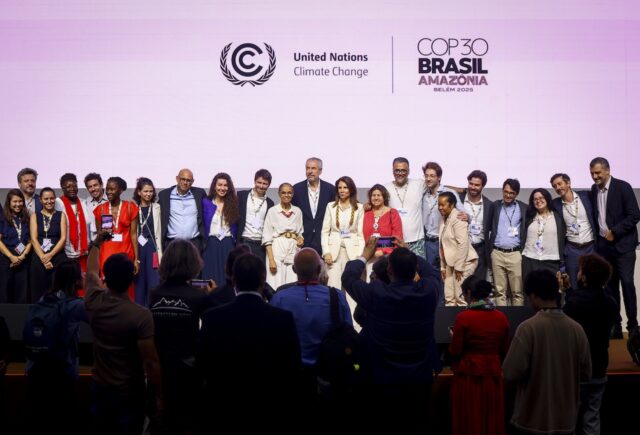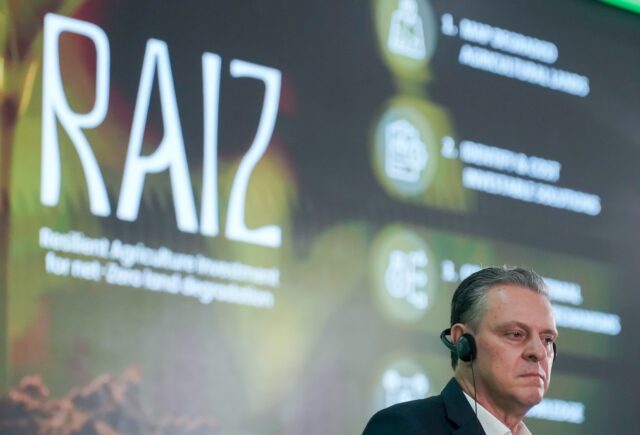The ‘Angels’ singer turns angel investor | Mediolanum launches fund investing in sustainable nutrition | Aviva backs saltmarsh research and restoration.

Singer-songwriter Robbie Williams has become the largest investor in Tickets for Good, a platform providing free and heavily discounted tickets for live events to the UK’s public health service (NHS) and charity-sector workers.
Williams’ investment was part of a seed funding round, which has raised £500,000 (€585,000) so far for the business and is expected to close at the end of this month.
Existing investors in the platform include Bethnal Green Ventures and US accelerator Comcast NBCUniversal SportsTech.
Tickets for Good, which was founded in 2019, has more than 200,000 users and has processed over 300,000 free and discounted tickets, will use the capital to support the expansion of its offer, including opening its services to more audience segments as well as new territories.
The company said its mission has also helped to drive audience development, social impact and sustainable revenues across the live and nighttime industries. According to the Music Venue Trust for every £1 spent on a ticket, £10 is returned to the local economy.
Williams, who has sold 80 million albums worldwide and had 14 number one singles (with Take That and as a solo artist), said: “Supporting access to the arts is a cause close to my heart. The magic of live entertainment is something everyone should be able to benefit from, so I’m thrilled to be working with Tickets For Good.”
Mediolanum’s new fund invests in sustainable nutrition
Irish asset manager Mediolanum International Funds Limited (MIFL) has launched a new fund to tackle the impact of industrial food production and consumption of agricultural resources by a growing world population.
The article 9 Mediolanum Best Brands Future Sustainable Nutrition fund will invest in companies that it said would “be instrumental to the transition to a more sustainable nutrition value chain starting from production moving to transformation and ending with distribution and consumption”.
Investing on a multi-manager basis, the fund’s first two managers include Pictet, which will invest in companies that produce high quality food, deliver it efficiently, and minimize waste, and BlackRock, which will focus on companies active in decarbonising the food chain and those providing more sustainable and healthier eating choices.
Luca Matassino, chief business officer at MIFL, said: “Future Sustainable Nutrition is an article 9 fund, which confirms Mediolanum commitment to sustainability, focusing on those companies that will benefit from the massive investments in this area in the next 10, 20 and 30 years.”
Aviva donates £21m to saltmarsh research and restoration
British insurer Aviva has partnered with the wetlands conservation charity the Wildfowl & Wetlands Trust (WWT) to support saltmarsh research and restoration in the UK.
The partnership will see Aviva donate £21m to restore up to 250 hectares of saltmarsh and support new on-the-ground research to help fill evidence gaps and provide a catalyst for further investment in saltmarsh creation to help combat climate change and reverse nature loss.
The company said saltmarshes have a significant role to play in fighting climate change, reversing nature loss and providing natural protection from flooding and coastal erosion for nearby communities, yet according to the UK government’s Environment Agency’s latest report into the state of the coastal and marine environment, an estimated 85% of English saltmarsh has been lost in the last 200 years.
The same report estimates that existing saltmarshes provide over £1bn (€1.17bn) in flood resilience benefits to UK homes and an earlier report has identified 22,000 hectares of land around the UK coast that could be restored to saltmarsh potentially capturing over 300,000 tonnes of carbon a year.
This latest donation follows recent donations of €5m to the Nature Trust in Ireland, £38m to the Wildlife Trusts and £10m to the Woodland Trust, and forms part of the company’s commitment to make the UK the most climate-ready large-economy by 2030.






